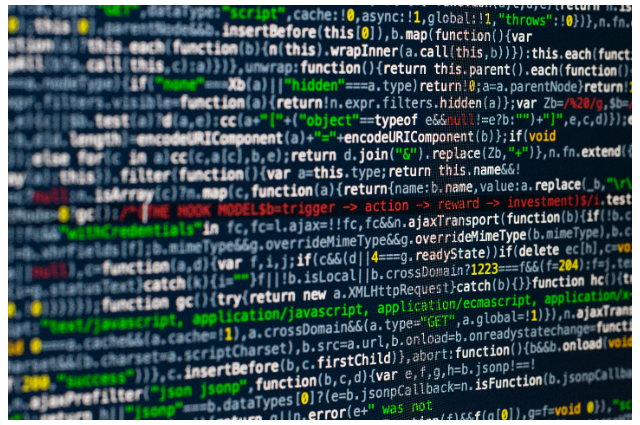
I remember the first time I heard the word 'Statistics' in class 6th, when I had just come back home from school, with a pale face and blood frozen like it would pop out of my veins, due to the bone-chilling cold of January. I had studied mean, median, mode that day, and with an excitement channelling through my entire body, I told my mother that I loved Mathematics, and I was gonna study Maths for the rest of my life.
This was my perception as a kid. My sister, who was doing B.Sc. at that time with Mathematics as a subject, shouted from the adjacent room saying "That's statistics, it's not even Maths. Wait, till you have to study the kind of boring Maths I am studying now." I laughed and said "I could never get bored of Mathematics. And what on earth is Statistics?" Looking back at this incident now, I couldn't agree more with my sister who based her prediction on facts unlike me who was completely overtaken by momentary love for Mathematics perceiving it as fact. As soon as I started studying mathematics in my Bachelor's program, I knew it would be the end of me and hence, I started hating Mathematics by the end of the first semester itself. This is what most humans do, we all have a knack for making predictions and perceptions but most of us don't have enough facts or data to substantiate our theories.
This is exactly where Statistics comes in. Instead of perceptions, what the world truly needs right now is facts. And those facts are supplied by the untiring efforts of thousands of students, researchers, scholars and professors studying statistics related to various genres. These hard-working groups of highly motivated human beings studying various types of statistics are called 'Statisticians'.
I know, I know what you're thinking. How are statisticians any different from the normal students or scholars of any other subject such as Mathematics? Aren't they all equally important? Yes, you're right, every subject plays a certain role in the proper functioning and advancement of the human race but the only subject that every other subject needs to fulfil its purpose is Statistics. In short, Statistics is the fundamental building block of every new invention and discovery, or research and review. Instead of fumbling around with plausible possibilities, Statistics provides data to ensure success at a higher probability. If Einstein was alive in the twenty-first century, I bet he would have given us way more discoveries and theories to mug up for our exams because Statistics would have helped him do his work at a much faster pace, with much more accuracy and efficiency.
Back in 2003, the UK government carried out a survey to measure the levels of numeracy in the UK population. Once the survey was done, they were shocked to find out that for every 100 working-age adults in the country, 47 lacked level one numeracy skills. Now, level one numeracy skill means the ability to deal with fractions, percentages and decimals. So this figure prompted a lot of hand-wringing in Whitehall. Policies were changed, investments were made and then they ran the survey again in 2011. Well, can you guess what happened in the new results? The number went up to 49 instead of reducing to a lower amount. Hilarious, right? Statistically speaking, this survey can only be hilarious to 51 per cent of the UK population in 2011. The reason why I found this study to be so amusing is that the UK has some of the leading Statistics colleges in the world like the University of Oxford, the University of Cambridge and the London School of Economics. We would perceive the UK to be good at numbers as a whole community just like Indians are perceived in the UK and USA to be a set of 'Ramanujans'. Can you see how misleading our perceptions can be when Statistics and data aren't involved?

I recently saw a post on LinkedIn where a fellow Statistician had used Machine Learning algorithms to train the face recognition model to interpret a person’s age and mood depending upon certain factors. He had uploaded a picture where the model had recognized his face and stated ‘Age: 28 years, Mood: Happy’ while at the back of his room, standing in the darkest part of the room was a figure whose interpretations were ‘Age: Unknown, Mood: Angry’. When I saw this post, I first thought it was a ghost that the machine had recognized. Spooky, right? That’s exactly how dynamic Statistics combined with Machine Learning is. With just the right amount of technology combined with the super powers of a Statistician, we might even find cures to Cancer or even better, build a Machine Learning or Deep Learning model to recognize God and ask him for help! Honestly, the word ‘impossible’ doesn’t exist in the dictionary of Statisticians, as long as we have manifolds of data to work on.

Gosh, what a scary world it would be without data, not being able to look at our old memories on Google photos, not being able to predict the stock markets, or not being able to make preparations for an upcoming tornado or tsunami. Statistics is truly a boon preventing so many people from suffering or losing their lives and providing them with so many helpful assets. Also, the world is ten times scarier today because of data, the readily available resources and the smart hackers presiding over the Dark Internet. Just like the entire world was bewitched under the unanimous terror of Whatsapp storing all our personal data, the same way we can never really know how our data is being manipulated if we remain blind-sided to the cons of using social media frivolously. We all have our own perceptions about everything but basing our perceptions on data and facts makes us more confident about the rights and wrongs. Instead of blindly investing in a business with short-term success in sight or paying tens of thousands of bucks to an astrologer to find out about your remaining life-span while smoking ten cigarettes a day, or preparing for the third wave of Covid-19 pandemic while completely ignoring the strict instructions of the government by going on a trip to Manali, why not ask a Statistician for advice and be amazed at the factual answers you get which will definitely contradict your silly, uncorroborated perceptions.
. . .
